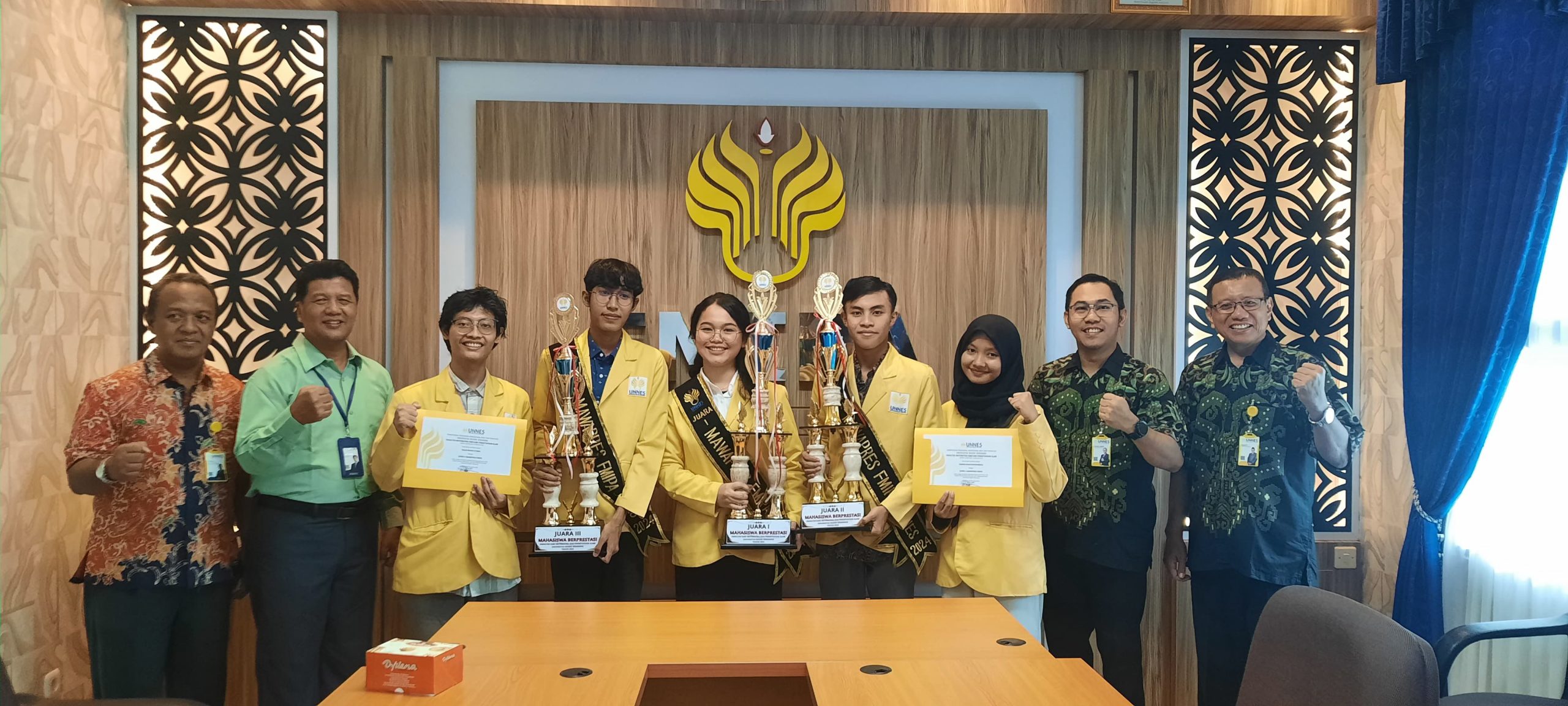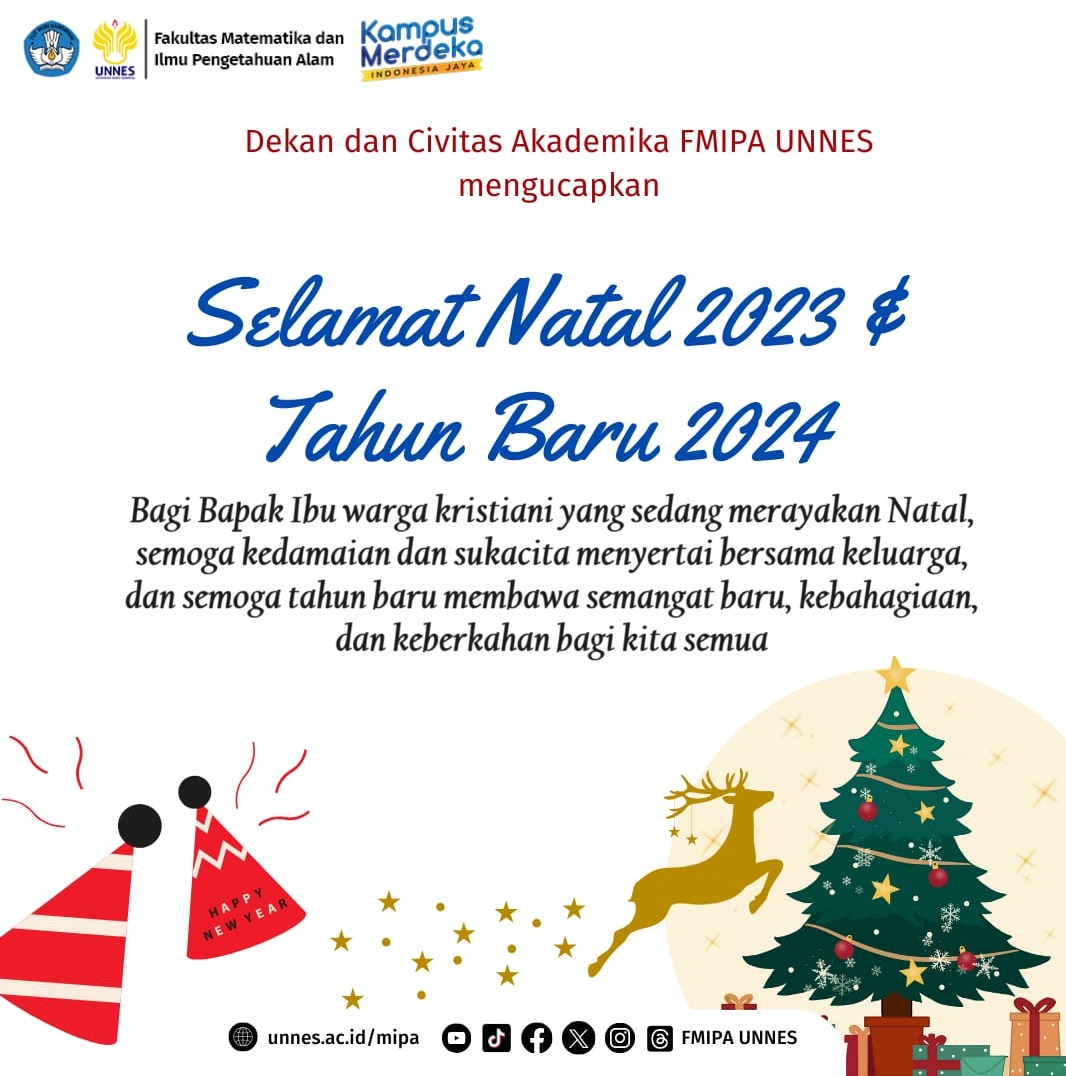
Genuine Fermentation Club (GFC) Hima Biologi UNNES bekerjasama dengan Pusat Unggulan IPTEK Pangan Fungsional LPPM UNNES dan Pusat Kajian Produk Obat dan Non-Obat Berbahan Alam FMIPA menyelenggarakan Zoominar pada hari Sabtu, 1 Mei 2021 dengan Tema: “From Fermentation to Creative and Innovative Enterpreneurship”. Zoominar ini diikuti oleh 93 peserta dari komunitas GFC, mahasiswa Jurusan Biologi, Bapak Ibu Dosen yang tergabung dalam Pusat Kajian di FMIPA dan PUI Pangan Fungsional LPPM serta beberapa ibu dari KUB OKE Kelurahan Sumurrejo. Adapun GFC adalah Organisasi Underbow Hima Biologi FMIPA yang berkegiatan pada bidang kewirausahaan di bidang fermentasi pangan dan non pangan.

Tujuan diselenggarakannya Zoominar adalah untuk mensosialisasikan, mengedukasi dan menumbuhkan serta memunculkan ide kreatif dan inovatif terhadap produk pangan fermentasi. Kajian bioteknologi pangan ini dalam menjalankan aktivitasnya memerlukan substrat atau media pertumbuhan dari bahan alam, proses fermentasi dan dihasilkan produk yang sehat dan bernilai komersiil, sekaligus dapat memberikan peluang kewirausahaan bagi masyarakat. Diharapkan setelah mengikuti Zoominar ini terbuka kesempatan untuk mengembangkan pangan fermentasi dari bahan alam dan dapat digunakannya bahan tambahan pangan alami yang dapat berperan sebagai agensia pencegah bukan obat yang mempunyai peran meningkatkan imunitas dan kebugaran tubuh. Hal ini sesuai dengan semangat Pusat Unggulan IPTEK Pangan Fungsional dan Pusat kajian Produk Obat dan Non-Obat Berbahan Alam, untuk selalu aktif dalam mengedepankan sehat dan bugar karena konsumsi makanan sehat dan sekaligus bisa berperan sebagai “obat”. Acara Zoominar dibuka oleh Ketua Panitia Fita Fatimah Hartanti dan dilanjutkan oleh Ketua GFC tahun 2021 yaitu Naina Rizki Kenarni 2021, kemudian secara resmi dibuka oleh pendamping GFC yaitu Ibu Prof. Dr. Siti Harnina Bintari, M.S. Pada Zoominar bertema Workshop produk fermentasi ini diisi paparan dari dua narasumber, yang pertama adalah Prof. Dr. Siti Harnina Bintari, M.S. mengisi materi tentang “Inovasi Tempe”. Narasumber kedua Ibu Natalia Desy Putriningtyas, S.Gz, M. Gz. memberikan materi “Potensi Yogurt Sebagai Pangan Fungsional”.
Paparan Prof. Dr. Siti Harnina Bintari, M.S.
Pangan yang ringan dan sehat bisa diperoleh dari kedelai, kedelai merupakan komoditas yang sarat dengan zat gizi dan non gizi antara lain isoflavone, Konsumsi pangan berbasis kedelai tidak menambah berat badan, dapat menjaga kesehatan pencernaan serta memberi peluang bisnis. Ditekankan lingkup inovasi tempe bisa diperolah dari bahan alami (lokal) dan bahan alternatifnya notabene bahan baku baru, yang ke dua teknologi tepat guna, berorientasi produksi bahan antara yaitu aneka tepung tempe, serta menerapkan teknologi substitusi/suplementasi/fortifikasi dan kesemuanya berbasis riset atau observasi. Sepeti diketahui bahwa tempe adalah makanan asli Jawa Tengah dan dapat dikembangkan menjadi produk pangan fungsional baru. Produk inovasi tempe bisa berupa permen coklat tempe, keripik tempe, tempe kelor, burger tempe, kripik tempe kelor, dan lainnya. Teknologi Suplementasi: 1. Bahan nabati/hewani sebagai pelengkap dalam proses pembuatan tempe hingga memperkuat nilai gizi. 2. Tempe sebagai pelengkap makanan dn minuman sebagai sumber nutrisi dan sumber antioksidan. 3. Tempe hasil inovasi ini ditambahkan sebagai pelengkap proses membuat produk makanan/minuman. Penambahan bawang putih sebagai bahan nabati pelengkap dalam proses pembuatan tempe hingga memperkuat nilai gizi. Kedelai terdapat generasi 1, generasi 2, dan generasi 3. Generasi 1 yaitu sifat khas tempe masih dominan seperti tempe segar, tempe goreng, keripik tempe. Generasi 2 yaitu sifat khas tempe sudah berkurang seperti tepung tempe, stik tempe, brownis tempe. Generasi 3 yaitu ekstraksi dan pemurnian senyawa bioaktif tempe seperti isoflavone tempe. Probiotik pada makanan fermentasi dapat menangkal serangan Covid-19 yang menyerang usus. Mekanismenya terjadi penempelan virus pada dinding sel bakteri dan akhirnya virus tidak mampu lagi menyerang sel usus hospes.
Paparan Ibu Natalia Desy Putriningtyas, S.Gz, M.Gz.
Yogurt berasal dari fermentasi susu dengan menggunakan bakteri Lactobacillus bulgaricus dan Streptococcus thermophilus dan atau bakteri asam laktat lain. Yoghurt mempunyai tekstur sebagai cairan kental-padat dan rasa yang asam khas yogurt. Jenis yogurt berdasarkan rasa yaitu plain (natural yogurt), fruit yogurt dengan tambahan buah, flavoured yogurt dengan tambahan gula atau pemanis lain, aroma, dan pewarna.
Pektin yang merupakan zat aditif pada pembuatan yogurt terdapat pada kulit buah naga. Kulit buah naga dapat dimanfaatkan sebagai bahan pektin untuk pembuatan yogurt. Karena kulit buah naga memiliki kandungan pektin yang tinggi, maka penggunaannya pun cukup sedikit sesuai kebutuhan saja agar yogurt yang dihasilkan sesuai dengan apa yang diinginkan. Emulsifier yang ditambahkan dalam yogurt berfungsi untuk menjaga kestabilan homogenitas fase minyak dan air sehingga dicapai tekstur, kekentalan, dan stabilitas yang diinginkan. Gelatin merupakan produk hewani yang berasal dari ekstrak kolagen. Namun, perlu diingat bahwa jenis gelatin sangat banyak di pasaran. Biasanya diperoleh dari ikan, sapi, dan babi sehingga perlu bertanya dan berhati-hati dalam membeli gelatin. Yogurt sebagai makanan fungsional yang merupakan makanan yang mengandung komponen bioaktif secara fisiologis dan dapat digunakan untuk pencegahan atau penyembuhan suatu penyakit atau untuk mencapai kesehatan tubuh yang optimal.

Dari hasil paparan dua narasumber yang dapat diperoleh adalah orang semakin peduli dengan masalah kesehatan, dengan mengkonsumsi produk fermentasi yakni antara lain inovasi tempe dengan suplementasi tepung daun kelor (Gambar 1) dan soygurt naga dengan bahan emulsierfier kulit buah naga (Gambar 2) sebagai bahan non obat dapat untuk meningkatkan imunitas dan kebugaran tubuh, pembuatan produk makanan tetap memperhatikan aspek higienitas dan eksistensi antioksidan dan unsur gizi yang lain.




